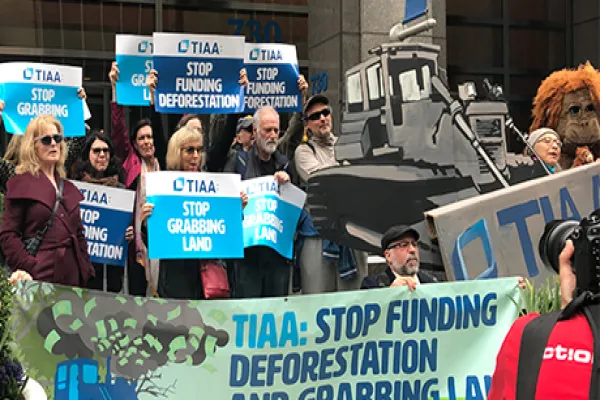| PEOPLE | |||
| What do the protesters want? Institutional Investor asked that question of Njoki Njehu, the director of 50 Years Is Enough: U.S. Network for Global Economic Justice, one of the organizers of this month's protests at the International Monetary Fund/World Bank meeting in Washington. By Editorial Staff September 2001 Institutional Investor Magazine Njehu, 35, was active in environmental and women's issues in her native Kenya before attending William Smith College in upstate New York. She worked for Greenpeace before joining 50 Years Is Enough, which was founded in 1994 on the 50th anniversary of the IMF and World Bank. On the eve of what was sure to be a contentious meeting, Njehu spoke with II Senior Writer Deepak Gopinath. Institutional Investor: Why are you protesting against the IMF and the World Bank? Njehu: They are public institutions that are funded by our tax money to push an agenda that does not benefit ordinary people; it benefits multinational corporations. When these institutions aggressively push policies like funding for coal-fired power plants in India and privatization of the phone companies in Mexico and El Salvador, they are benefiting mostly wealthy corporations. They are perpetrating a massive transfer of wealth from the public into private hands. The World Bank and IMF push sweatshops and export-oriented models of production, so if you are Nicaragua or Guatemala, your so-called comparative advantage is large pools of unemployed people. You end up having sweatshops where people are paid less and less. What are your demands, then? They include debt cancellation, an end to environmentally and socially destructive development programs, an end to structural-adjustment programs and for the IMF and World Bank to open their meetings to the public and the media. We also want an independent truth commission to look into debt accumulation. Who was it at the Bank who authorized billions of dollars for Marcos and Mobuto and Somoza and Duvalier - all of our favorite dictators? Would you say your movement is antiglobalization? I'd say anti-corporate globalization. The fact that we are able to organize and mobilize around the world is a different kind of globalization, one that we support. We are against a globalization that puts profits far beyond human life, far beyond environmental protection, the kind of globalization that says it's okay to let people in Africa die rather than make HIV-AIDS medication available to them. We are told that there is a booming global economy, but people are starving. That is not acceptable. What alternative system do you propose? I am not smart enough to have the answer. But there is a great deal to be said for appropriate economic development models. For example, my mother is involved in a family-level food security program in Kenya where people plant food outside the house, not flowers. They are going back to local markets and subsistence production. Do you approve of violent tactics? Fifty Years Is Enough has a total and complete commitment to nonviolence. I personally believe there is no point that we have to make, whether it is about debt or structural-adjustment programs or lack of accountability, that requires us to engage in property destruction. In fact, I believe it distracts from the focus of the message. ©Copyright 2001 Institutional Investor, Inc. | |||
What do the protesters want?
August 31, 2001




